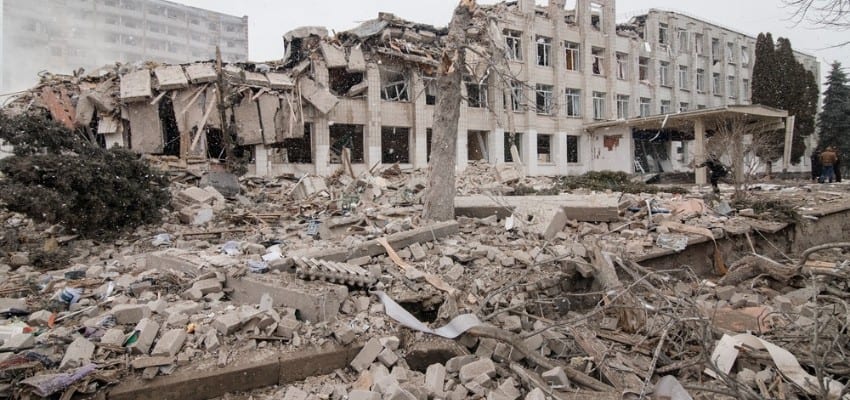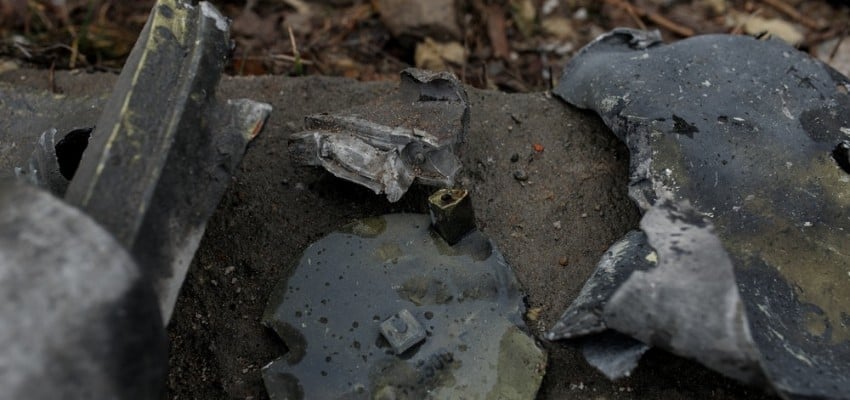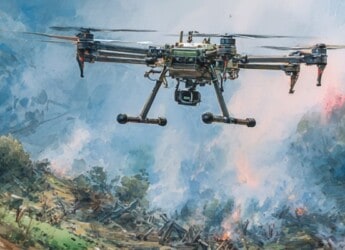|
|
Content Assessment: The Influence of Information? Ukraine Conflict Assessments in Maps (April 4–6, 2022)
Information - 96%
Insight - 95%
Relevance - 94%
Objectivity - 92%
Authority - 95%
94%
Excellent
A short percentage-based assessment of the qualitative benefit of the post highlighting the recent Ukraine conflict assessments in maps from the Institute for the Study of War.
Editor’s Note: One of the most accurate and detailed sources for ongoing updates on the Ukraine crisis is the Ukraine Conflict Update from the Institute for the Study of War. The Institute for the Study of War (ISW) is a 501(c)(3) organization and produces strictly non-partisan, non-ideological, fact-based research. ISW seeks to promote an informed understanding of war and military affairs through comprehensive, independent, and accessible open-source research and analysis. ISW’s research is made available to the general public, military practitioners, policymakers, and media members. Providing a daily synthesis of key events related to the Russian aggression against Ukraine, ISW updates may benefit cybersecurity, information governance, and legal discovery professionals as they follow the business, information technology, and legal trends and trajectories impacted by and stemming from the current Ukraine conflict.
Assessment and Maps*
Ukraine Conflict Assessments – An Overview in Maps
- Institute for the Study of War (ISW), Russia Team
- Critical Threats Project (CTP), American Enterprise Institute
General Assessment Background Info
- ISW systematically publishes Russian campaign assessments that include maps highlighting the assessed control of terrain in Ukraine and main Russian maneuver axes.
- These maps augment daily synthetic products that cover key events related to renewed Russian aggression against Ukraine.
Russian Offensive Campaign Assessment on April 6, 2022
Extract (Mason Clark, George Barros, and Kateryna Stepanenko)
Russian forces continued to redeploy forces to the Izyum-Slovyansk axis and eastern Ukraine in the past 24 hours and did not secure any major advances. Russian forces completed their withdrawal from Sumy Oblast, and Russian forces previously withdrawn from northeastern Ukraine continued to redeploy to Belgorod, Russia, for further deployment to Izyum or Donbas. The Ukrainian military reported that Russia plans to deploy elements from the Kyiv axis to Izyum, but these units will not likely regain combat effectiveness for some time.
Russian forces may be preparing for a larger offensive in Donetsk and Luhansk Oblasts in the coming days, but are unlikely to generate the combat power necessary to break through Ukrainian defenses in continuing frontal assaults. Ukrainian officials and pro-Russian Telegram channels both reported additional Russian equipment arriving in Donbas from an unspecified location in preparation for a renewed offensive. Russian forces continued assaults in Mariupol, and we cannot confirm concrete control of terrain changes in the city. Russian forces continued offensive operations along the Izyum-Slovyansk axis but did not make any major territorial gains.
Key Takeaways
- Russian forces with heavy air and artillery support continued assaults on Ukrainian positions in Mariupol in the past 24 hours.
- Russian and proxy forces in eastern Ukraine are likely attempting to consolidate forces and material for an offensive in the coming days.
- Russian forces continued offensive operations from Izyum towards Slovyansk but did not make any major territorial gains.
- Ukrainian forces conducted successful counterattacks towards Kherson from both the north and west.
- Russian forces completely vacated Sumy Oblast.
- Russian General Officers are reportedly instructing commanders to severely restrict internet access among Russian personnel in an attempt to combat low morale.
- The US and NATO should take a strong stance on any Russian threat to use its military forces in Transnistria, the illegally Russian-occupied strip of Moldova bordering Ukraine.
Ukrainian Military Intelligence reported increasing Russian censorship in an effort to combat growing morale problems among Russian troops. Ukraine’s GUR reported that Russian officers are intensifying censorship of their troops and restricting access to the internet due to low morale. The GUR claimed that Russian commanders complain about increasing Ukrainian influence over the information consumed by Russian soldiers. The GUR claimed to have intercepted an extract from an order issued by the Deputy Commander of the Western Military District for military and political work, which blamed low Russian morale on the internet and social media. The document reportedly instructs Russian officers to either ban or severely censor all messages received by personnel, as well as access to the internet. Draconian measures to restrict access to information among Russian personnel will likely further exacerbate low morale and desertion rates.
Ukraine Conflict Maps - 040422-040622
Read the latest Ukraine Conflict updates from the Institute for the Study of War
* Shared with direct express permission from the Institute for the Study of War (ISW).
About the Institute for the Study of War Research Methodology
ISW’s research methodology relies on both primary and secondary sources, enabling researchers to develop a comprehensive understanding of the situation on the ground. In order to analyze military and political developments in any given area, ISW’s research analysts must wholly understand the systems of enemy and friendly forces. They must also understand the population demographics, physical terrain, politics, and history of that area. This lays the analytical foundation for understanding the reasons for particular developments and fulfilling their assigned research objectives. ISW analysts also spend time in places like Iraq, Afghanistan, and elsewhere in order to gain a better understanding of the security and political situation and to evaluate the implementation of current strategies and policies. Our researchers compile data and analyze trends, producing a granular analysis of developments in areas of research, producing an accurate, high-resolution, timely, and thorough picture of the situation. ISW’s research methodology guarantees its success and commitment to improving the nation’s ability to execute military operations, achieve strategic objectives, and respond to emerging problems that may require the use of American military power.
About the Institute for the Study of War
The Institute for the Study of War advances an informed understanding of military affairs through reliable research, trusted analysis, and innovative education. We are committed to improving the nation’s ability to execute military operations and respond to emerging threats in order to achieve U.S. strategic objectives. ISW is a non-partisan, non-profit, public policy research organization. Learn more, get involved, and contribute today.
Additional Reading
- [Annual Update] International Cyber Law in Practice: Interactive Toolkit
- Data Embassies: Sovereignty, Security, and Continuity for Nation-States
Source: ComplexDiscovery


























